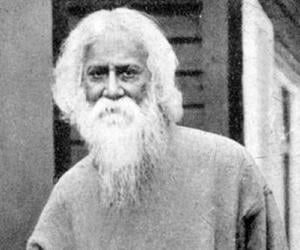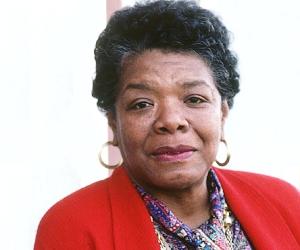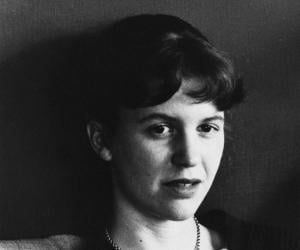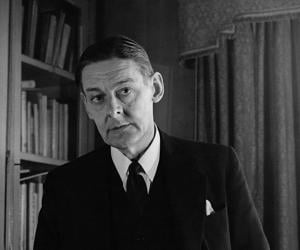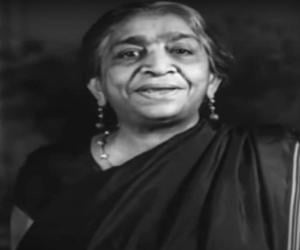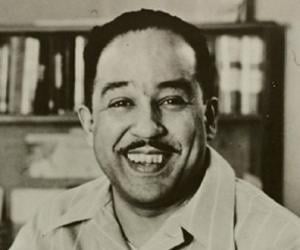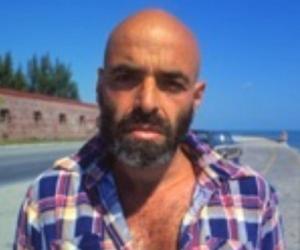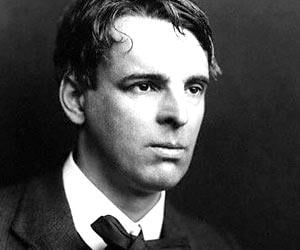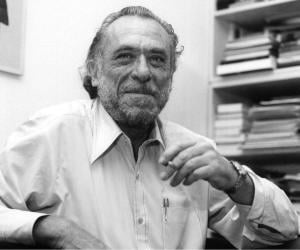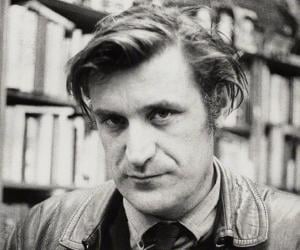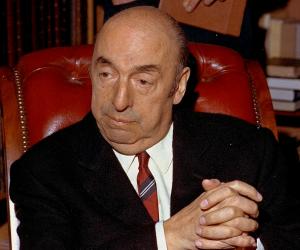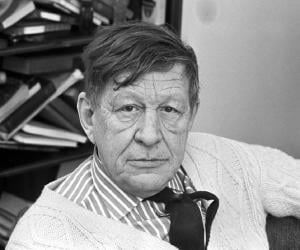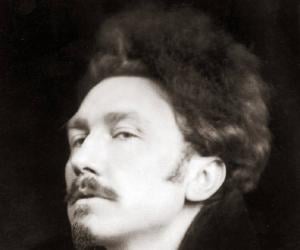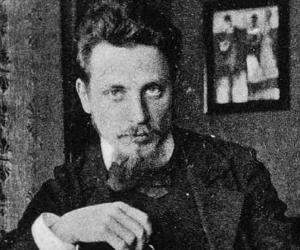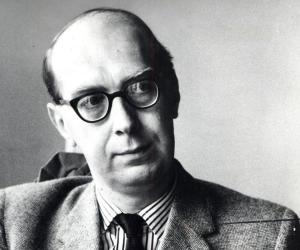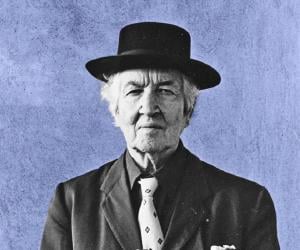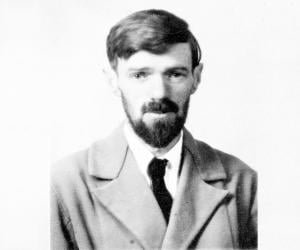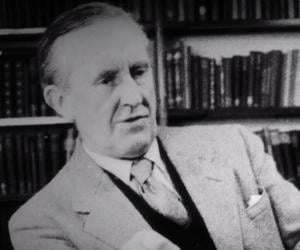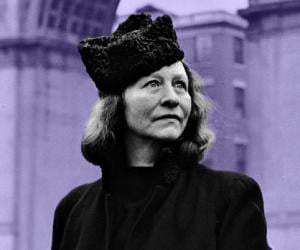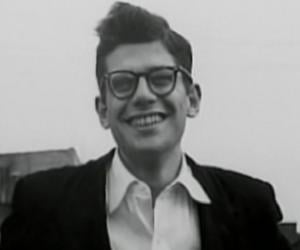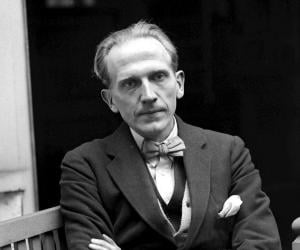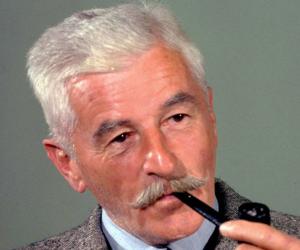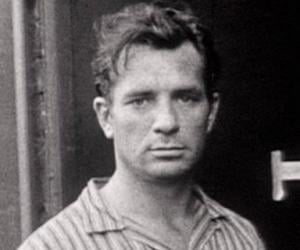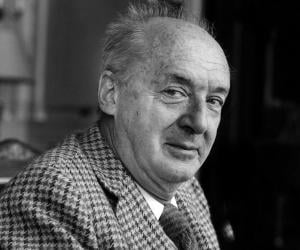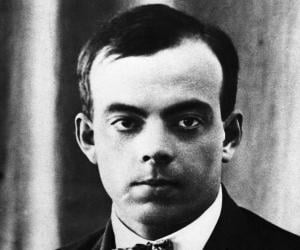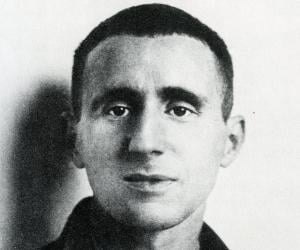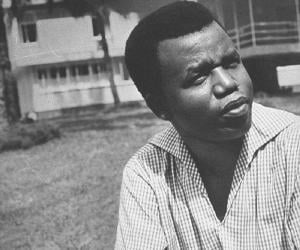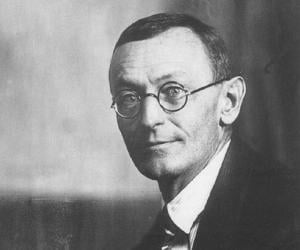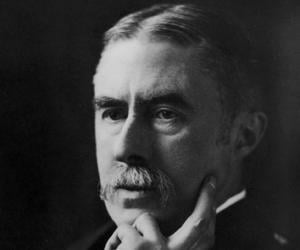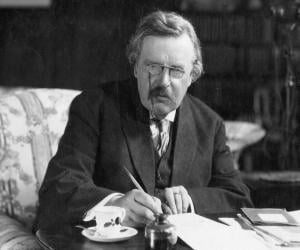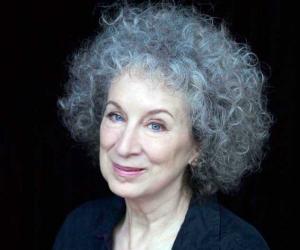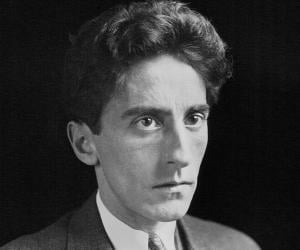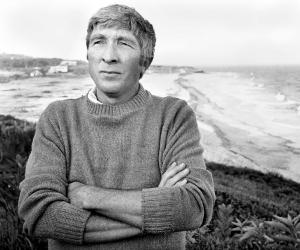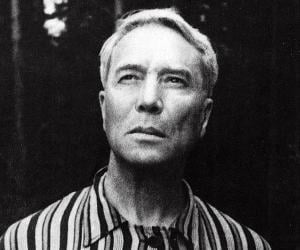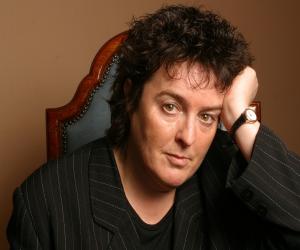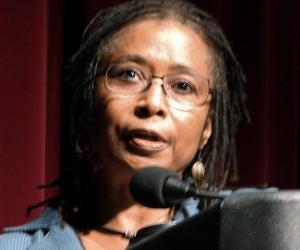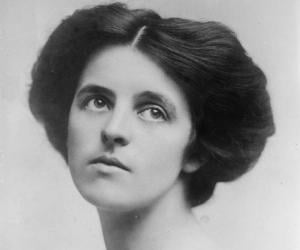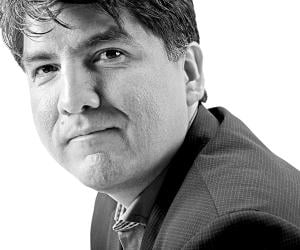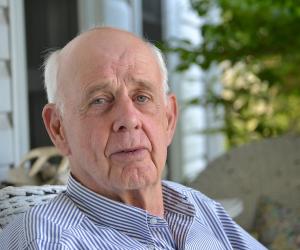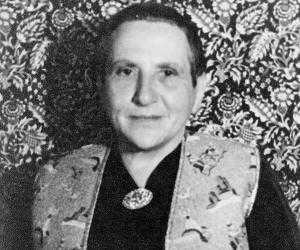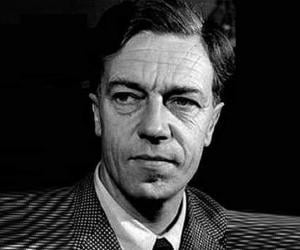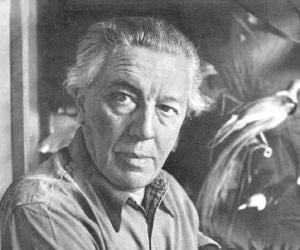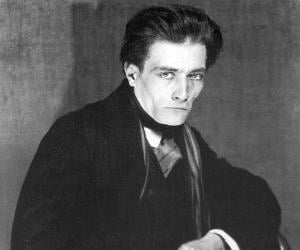Rabindranath Tagore was an Indian polymath who contributed greatly to the fields of literature, art, and philosophy. Referred to as the Bard of Bengal, Tagore is credited with reshaping Bengali literature and music. The first non-European to receive the Nobel Prize in Literature, Tagore is also credited with composing the national anthems of India and Bangladesh.
Sylvia Plath was an American short-story writer, novelist, and poet. Plath is credited with popularizing confessional poetry and won a posthumous Pulitzer Prize in Poetry. Sylvia Plath achieved popularity and critical acclaim despite suffering from clinical depression for the most part of her adult life. Her story inspired the 2003 film Sylvia in which she was portrayed by Gwyneth Paltrow.
Robert Frost was an American poet. An influential poet, Frost was honored with four Pulitzer Prizes for Poetry, the only poet to receive four such awards. One of America's public literary figures, Robert Frost received the Congressional Gold Medal in 1960. His works influenced other poets like Robert Francis, James Wright, Edward Thomas, Richard Wilbur, and Seamus Heaney.
Sarojini Naidu was an Indian poet and political activist. An important figure in the Indian Independence Movement, she was a proponent of anti-imperialistic ideas, women's rights, and civil rights. Her illustrious career as a poet earned her the nickname Nightingale of India. After India became independent, she became the first woman to hold the office of Governor in the Dominion of India.
Langston Hughes is best remembered as a prominent leader of the Harlem Renaissance. He was one of the first to write jazz poetry. He also wrote plays and short stories. He was a columnist for The Chicago Defender and wrote the iconic poem The Negro Speaks of Rivers.
Shel Silverstein was an American writer, playwright, songwriter, and cartoonist. Renowned for his children's books, songs, and cartoons, Silverstein's works have been translated into over 30 languages. The recipient of many prestigious awards, such as Grammy Awards, Shel Silverstein was posthumously inducted into the Chicago Literary Hall of Fame.
German-American poet and short story writer ,Charles Bukowski, addressed the ordinary lives of poor Americans in most of his works. Since his death, he has been the subject of many critical books and articles. His stories have inspired several films like Tales of Ordinary Madness, Crazy Love, and Factotum.
Chilean poet-diplomat and politician, Pablo Neruda, won the Nobel Prize for Literature in 1971. He was a versatile writer and his works include surrealist poems, historical epics, political manifestos, and love poems. He is considered the national poet of Chile. As a politician, he served a term as a senator for the Chilean Communist Party and held several diplomatic positions.
W. H. Auden was an Anglo-American poet. His poetry was noted for its technical achievement and versatility. He wrote poems on love, political and social themes, and cultural and psychological themes. Throughout his career, Auden was both influential and controversial. His personal life also attracted attention as he had sexual relationships with men, which was unusual at the time.
Bohemian-Austrian poet and author Rainer Maria Rilke is best remembered for his numerous poetry collections and his only novel, The Notebooks of Malte Laurids Brigge. His works contain metaphors, contradictions, and elements drawn from Greek mythology. Though most of his works were in German, he had also written in French.
English writer, D. H. Lawrence, was known for exploring sensitive issues, such as sexuality, emotional health, and instinct. In his works, he often reflected upon the dehumanizing effects of modernity and industrialization. The sexual nature of his writings earned him many enemies. Even though he died at the relatively young age of 44, he left behind a rich literary legacy.
Considered one of the greatest authors, JRR Tolkien is popularly called the father of the modern fantasy literature. He is best known for his high fantasy classic works The Hobbit and The Lord of the Rings, which is set in a conceived world called the Middle-Earth. Many years after his death, Tolkien continues to be one of the best-selling writers.
A. A. Milne was an English author best known for his books about the teddy bear Winnie-the-Pooh. He joined the British Army as a young man and served in both World War I and World War II. In his career as a writer, he wrote several novels, non-fiction pieces, articles, poems, screenplays, and children’s stories.
French writer, poet, aristocrat, and journalist, Antoine de Saint-Exupery, is best remembered for his novella, The Little Prince. He was a pioneering aviator as a young man. A successful commercial pilot before World War II, he joined the French Air Force at the start of the war. Equally successful as a writer, he won several of France's highest literary awards.
German playwright, poet, and theater director, Bertolt Brecht, is best known for co-writing the play, The Threepenny Opera, with Kurt Weill. Growing up in war-torn Germany in the early 20th century, he had a difficult life. A hardcore Marxist, he lived in exile during the Nazi period. He returned to Germany after the war and established a theater company.
Chinua Achebe was a Nigerian poet, novelist, professor, and critic. Often described as Africa's greatest storyteller, Achebe is widely regarded as the father of modern African writing. He was the recipient of several awards and honors, including the Man Booker International Prize 2007. His novel Things Fall Apart is one of the most read books in Africa.
German-born Swiss poet, novelist, and painter Hermann Hesse received the Nobel Prize in Literature in 1946. He explored individuals’ search for authenticity, self-knowledge, and spirituality in his works. An intense and headstrong person from childhood, he developed an early interest in reading. He started writing as a young man and became an influential author in the German-speaking world.
Gilbert K. Chesterton was an English writer, philosopher, and art critic. A prolific writer, he composed around 80 books, hundreds of poems, around 200 short stories, and 4,000 essays. Often referred to as the "prince of paradox", he had as many detractors as he had admirers. He is considered a successor to Victorian authors like Matthew Arnold and John Ruskin.
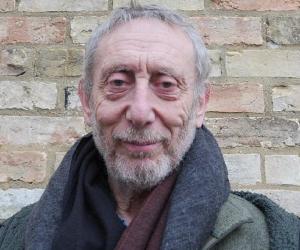
Margaret Atwood is a Canadian poet and novelist. Her works encompass themes, such as religion and myth, climate change, and gender and identity. An award-winning writer, many of Atwood's works have been made into films and television series; her work, The Handmaid's Tale, has had several adaptations. Perhaps, Margaret Atwood's most important contribution is her invention of the LongPen device.
Son of an artist father and a pianist mother, Boris Pasternak initially wished to become a musician. He is best known for his novel Doctor Zhivago, set against backdrop of the Russian Revolution. The Soviet Communists forced him to decline the Nobel Prize, which his descendants later accepted.
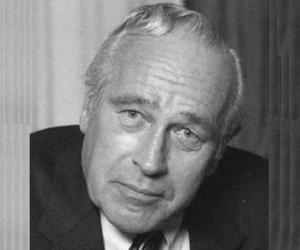
Poet and author Dorothy Parker rose to fame with her published works in The New Yorker. She later formed the Algonquin Round Table. She also wrote for Hollywood films such as A Star Is Born and earned two Academy Award nominations. However, her association with left-wing politics got her blacklisted.
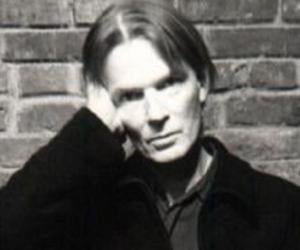
Punk musician and author Jim Carroll is best remembered for his autobiographical depiction of his struggle with drugs in his teenage years, The Basketball Diaries, which was later turned into a film starring Leonardo DiCaprio. Part of The Jim Carroll Band, he was known for the single People Who Died.

Gertrude Stein was an American playwright, novelist, poet, and art collector. She is remembered for publishing works about lesbian sexuality, which was considered a taboo at that time. Over the years, Gertrude Stein has been the subject of several works of art. In the 2011 movie Midnight in Paris, Stein was portrayed by Kathy Bates.
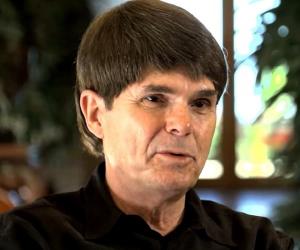

C. Day-Lewis was an Anglo-Irish poet who also wrote many mystery stories. From 1968 to 1972, he served as the Poet Laureate. He also contributed as a publications editor during World War II, working for the Ministry of Information.
Born into a family of shopkeepers, French poet André Breton initially studied medicine and psychiatry. He then joined Dadaism and eventually branched out and became one of the pioneers of the surrealist movement. Known for his Surrealist Manifestos, Breton was also a collector of manuscripts, sculptures, and paintings.
Antonin Artaud was a French writer, poet, dramatist, and theater director. Known for his raw, surreal, and transgressive themes, he was a major figure in 20th-century theater. He outlined his theories in the Theatre of Cruelty movement, expressed in the form of essays and plays. He died of cancer at the age of 51.
